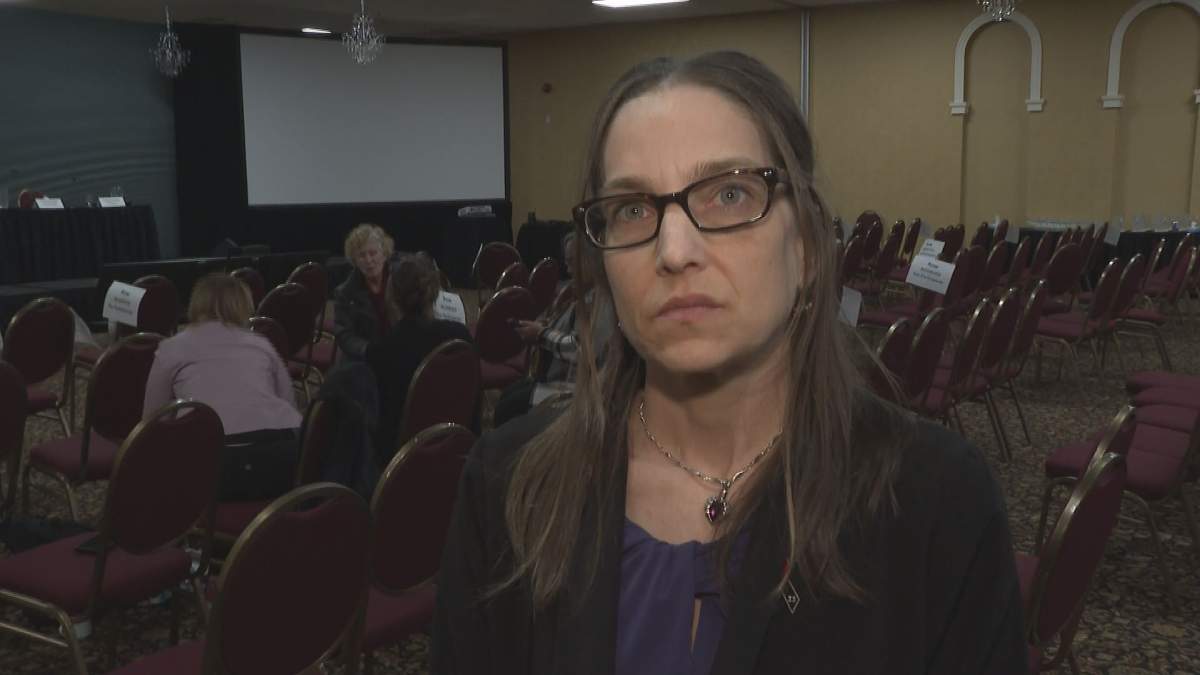The Mass Casualty Commission’s final report into the 2020 Nova Scotia shooting was released Thursday, and some family members of the victims say that they’re cautiously optimistic that it will lead to change — and they will continue to push for justice in memory of their loved ones.

Some families were at the Best Western Glengarry in Truro, N.S., Thursday for the release of the report, and a hush fell over the room as a moment of silent reflection was taken in honour of the 22 lives lost three years ago.
It included an emotional video showing pictures of the victims, with the message: “We remember.”
Over the course of 13 hours on April 18-19, 2020, a gunman killed 22 people, including a pregnant woman, across three Nova Scotia counties. He was at times dressed like a Mountie and driving a replica RCMP vehicle.
It was the deadliest mass shooting in modern Canadian history.
The rampage ended when the perpetrator was fatally shot by two RCMP officers at a gas station in Enfield, north of Halifax.
The inquiry into the tragedy — fought for and won by family members of the victims — included 76 days of public hearings, more than 7,000 exhibits and source materials, and 230 witnesses.
The inquiry’s final report touched on a variety of issues, including the police response, the killer’s access to firearms, the role of gender-based violence and the steps taken to inform the public as the rampage unfolded.
Bonnie Oliver was one of the family members there on Thursday. She’s the mother of Jolene Oliver, the mother-in-law of Aaron Tuck, and the grandmother of 17-year-old Emily Tuck, the shooting’s youngest victim.
The family of three were neighbours of the gunman and were killed in their Portapique home.
“We will never know why or what happened,” said Oliver, “but at least this report is giving us a starting page to be able to create our family’s legacy.”

Get breaking National news
Charlene Bagley, the daughter of victim Tom Bagley, said the report “looks good on paper right now.”
“My hope is that we follow through and move forward with what they do recommend,” she said.
“If that is the case, then I believe that maybe, perhaps, if this were to unfortunately ever happen again, that we would be able to maybe be in a better place where there maybe wouldn’t be as (many) casualties.”
The report was highly critical of the RCMP response to the killings, and of the report’s 130 recommendations, 75 of which had to do with police.
It detailed the RCMP’s various failures in preventing, responding to, and reacting in the aftermath of the tragedy, and said the institution as a whole needs to be re-examined.
Harry Bond, son of Peter and Joy Bond, said the report shows how the national police force “messed up here.”
“I was surprised to see that, and at the same time it made me smile that (the commissioners) actually did their job on that part,” he said.
While not 100 per cent confident the recommendations will be implemented, Bond said pressure from the families will make it happen.
“I’ve got faith because the families aren’t going to back down,” he said.
“I mean, our loved ones aren’t here so someone has to fight for them. And they didn’t deserve what happened so they deserve some justice.
“I know I won’t back down.”
‘It’s going to make changes’
Scott McLeod, whose brother Sean was killed in the shooting, told reporters after the report’s release that having the opportunity for the victims’ families to be heard was a “fantastic thing.”
“It’s going to make changes,” he said.
“Nothing will bring my brother back, or anyone we lost in this horrible ordeal, but we have to … move things forward.”
Among the recommendations, the commission called for a committee to ensure the other recommendations are carried out. McLeod said he plans to be a member of that committee.
Sandra McCulloch, a lawyer who represents relatives of 14 victims, said her clients experienced a sense of relief when the seven-volume report was published.
“They’ve put so much energy and emotion into this process, they can begin to move on from this piece,” she said in an interview.
“There is a lot of content in there that is in line with concerns they had expressed, mainly about the RCMP’s response to the mass (shooting) and the way they were dealt with. …. That’s the gut reaction.”
— with files from The Canadian Press













Comments